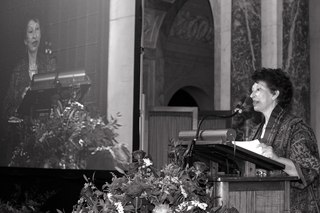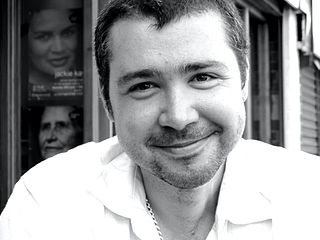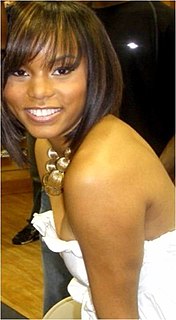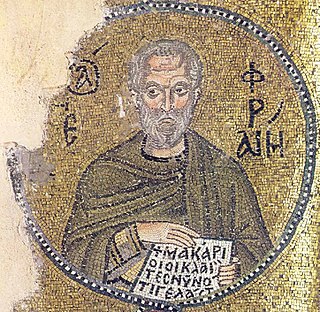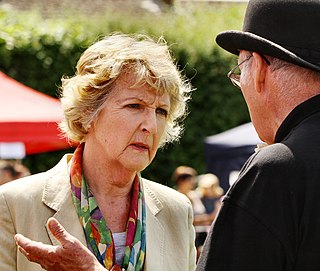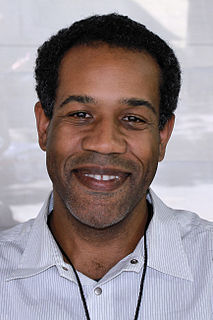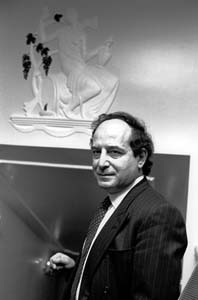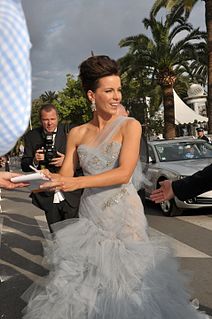Top 428 Texts Quotes & Sayings - Page 5
Explore popular Texts quotes.
Last updated on April 22, 2025.
The 21st century - and the atheists - needs the presence of religion, just as religion must deal with the real challenges and the thinkers of the day in order to sharpen the conscience and the intelligence of those who study the timeless sacred texts in a spirit of responding to the questions of their time.
'Ever closer union' is one of the totemically controversial phrases in the European Union's Treaties. It seems to give weight to the view that the scheme is designed to end in a single state and that those who agreed the texts have long know this, even if they have been unwilling to admit it to the British people.
I knew I wanted the parties in 'The Queen of the Night' to be convincing, beautiful, and also dramatic: situations where significant things happened on a scale that was both grand and intimate. There were several texts that helped me think about how to do this, and one of the most important ones was Charlotte Bronte's novel 'Villette.'
...there are still truths in the Bible and many other ancient texts despite what religions have done to destroy and debase them. Religious dogma and myth have been used very successfully either to suppress understanding or to twist the truth sufficiently to turn something positive into something negative.
There are a few 'Raw Shark Texts' tattoos floating around the Internet now, so I'm gathering them up to post on my forum. It's a strange thought, knowing that readers are tattooing themselves with something I've created, but it feels wonderful to have added something that people care about to the world.
Along with Islam and Christianity, Judaism does insist that some turgid and contradictory and sometimes evil and mad texts, obviously written by fairly unexceptional humans, are in fact the word of god. I think that the indispensable condition of any intellectual liberty is the realisation that there is no such thing.
The president is the high priest of what sociologist Robert Bellah calls the 'American civil religion.' The president must invoke the name of God (though not Jesus), glorify America's heroes and history,quote its sacred texts (the Declaration of Independence and the Constitution), and perform the transubstantiation of pluribus unum.
It has been said that I am not a 'real' Libertarian. A certain faction of the Party has come to believe that the writings of Ayn Rand and Milton Friedman are the holy texts of Libertarianism, and I disagree. I believe that the Libertarian movement is and should be more encompassing than the narrow-minded advocacy of economic anarchy.
All sentences of the type 'deconstruction is X' or 'deconstruction is not X', a priori miss the point, which is to say that they are at least false. As you know, one of the principal things at stake in what is called in my texts 'deconstruction', is precisely the delimiting of ontology and above all of the third-person present indicative: S is P.
Me and my sister and my best friend get on the phone every morning and pray about different things. Even if we can't talk, because both of them have kids and I'm on the road, we shoot each other texts. 'What can I pray for you today?' It's a wonderful feeling knowing that you have women of God praying for you. There's nothing like that.
Anybody who has read any biblical scholarship knows that every scholar struggles over completely intractable problems with the original texts, or what they have to work from. It's one of the great, powerful, mysterious objects that have come down through history. This does not translate into literal interpretation for me.
Socialist ideology, like so many others, has two main dangers. One stems from confused and incomplete readings of foreign texts, and the other from the arrogance and hidden rage of those who, in order to climb up in the world, pretend to be frantic defenders of the helpless so as to have shoulders on which to stand.
I don't remember much about the specifics of the economics courses that I majored in - I apparently internalized the key concepts - but I still remember vividly the thrill of reading 'Don Quixote,' Epictetus, 'The Aeneid,' 'King Lear' and 'Candide,' and how contemporary the stories and ideas in these old and ancient texts struck me.
On top of whatever else I'm doing, I'm usually teaching some form of composition. The benefit of this is I get to read across disciplines. Often enough that work spills over to my creative reading/thinking, and I reach a point of saturation where I can't distinguish between texts and writers and everything starts to blur and smudge together.
Harmony of period and melody of style have greater weight than is generally imagined in the judgment we pass upon writing and writers. As a proof of this, let us reflect what texts of scripture, what lines in poetry, or what periods we most remember and quote, either in verse or prose, and we shall find them to be only musical ones.
Determining the value of individual texts has been an ideological scuffle in literary criticism for centuries: but the environmental cost of printing them hauls this dispute from the ivory tower into day-to-day decision-making. Is it right to write? The publishing industry is slowly beginning to commit to using sustainably harvested trees.
Secular humanism does not have the essential attributes of a religion: belief in a deity, the wish for some sort of afterlife, sacred dogma or texts, or an absolutist moral creed. Instead, it expresses a philosophical and ethical point of view, and it draws upon the scientific method in formulationg its naturalistic view of the nature.
To many writers and thinkers, though not to all, another text is, or can be, the most naked and charged of life-forces ... The concept of allusion or analogue is totally inadequate. To Dante these other texts are the organic context of identity. They are as directly about life as life is about them.
Previous technologies have expanded communication. But the last round may be contracting it. The eloquence of letters has turned into the unnuanced spareness of texts; the intimacy of phone conversations has turned into the missed signals of mobile phone chat ... ('you're breaking up' is the cry of our time).
Wendy Doniger has spent decades collecting not only myths from ancient texts but stories of all kinds from novels, movies, newspapers about an old mystery: what has or hasn't happened in bed for centuries. Rich in insights about sex, lies, and personal identity, the result is entertaining, enthralling, and, yes, sexy.
The history of the Jews has been written overwhelmingly by scholars of texts - understandably given the formative nature of the Bible and the Talmud. Seeing Jewish history through artifacts, architecture and images is still a young but spectacularly flourishing discipline that's changing the whole story.









